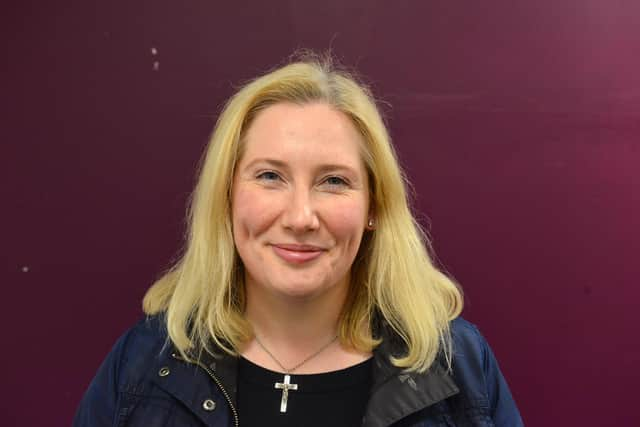South Shields MP named alongside a former Prime Minister to propose a new law
and live on Freeview channel 276
Emma Lewell-Buck, the Member of Parliament for South Shields, was named in the Private Members' Bill ballot on Thursday, November 16.
The Chairman of Ways and Means, Rt Hon Dame Eleanor Laing, drew 20 numbered ballot balls and read out the names of the successful MPs during the session in the House of Commons.
Advertisement
Hide AdAdvertisement
Hide AdThe South Shields MP was drawn in 15th place during the ballot, with the top seven MPs named guaranteed a full day of debate on their bill.
During the session, it was revealed that 415 Members had entered the ballot, with Sunderland Central MP, Julie Elliott being named in first position, meaning she has the first choice of a Private Members' Bill Friday to debate her proposed bill.


Former Prime Minister, Liz Truss, was also named in the ballot as she was drawn in 18th place.
In a post on X (formerly Twitter) on Friday, November 17, Mrs Lewell-Buck spoke of the "fantastic opportunity" that it gives her to introduce her own legislation.
Advertisement
Hide AdAdvertisement
Hide AdShe said: "Yesterday, I was one of 20 MPs chosen in the Private Members' Bill ballot. "This is a fantastic opportunity to introduce a piece of my own legislation.
"In the last Parliamentary session, 16 bills from the ballot became law."
The ballot bills will have their first reading in the House of Commons on Wednesday, December 6, before they are debated over 13 sitting Fridays.
Read South Tyneside's news on the go with our free email newsletters - bringing the headlines to your inbox. Catch up on the day's news and sport and enjoy even more from your Gazette. Visit our website here to find out more and sign up.
Advertisement
Hide AdAdvertisement
Hide AdThose who are drawn higher in the ballot are more likely to get time to debate their bill and therefore, more likely to have their bill become law.
However, in the last Parliamentary session, 16 Private Members' Bills became law.
Private Members' Bills are public bills that are introduced by MPs and Lords who are not government ministers.
The purpose of a Private Members' Bill is to change the law as it applies to the general population, however, only a minority of them actually make it through the law making process.